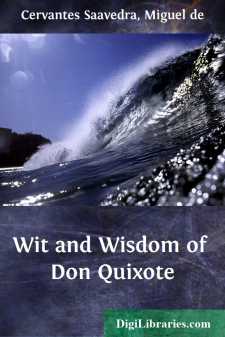Categories
- Antiques & Collectibles 13
- Architecture 36
- Art 48
- Bibles 22
- Biography & Autobiography 813
- Body, Mind & Spirit 142
- Business & Economics 28
- Children's Books 17
- Children's Fiction 14
- Computers 4
- Cooking 94
- Crafts & Hobbies 4
- Drama 346
- Education 46
- Family & Relationships 57
- Fiction 11829
- Games 19
- Gardening 17
- Health & Fitness 34
- History 1377
- House & Home 1
- Humor 147
- Juvenile Fiction 1873
- Juvenile Nonfiction 202
- Language Arts & Disciplines 88
- Law 16
- Literary Collections 686
- Literary Criticism 179
- Mathematics 13
- Medical 41
- Music 40
- Nature 179
- Non-Classifiable 1768
- Performing Arts 7
- Periodicals 1453
- Philosophy 64
- Photography 2
- Poetry 896
- Political Science 203
- Psychology 42
- Reference 154
- Religion 513
- Science 126
- Self-Help 84
- Social Science 81
- Sports & Recreation 34
- Study Aids 3
- Technology & Engineering 59
- Transportation 23
- Travel 463
- True Crime 29
Miguel de Cervantes Saavedra
Miguel de Cervantes Saavedra (1547–1616) was a Spanish writer best known for his iconic novel "Don Quixote," considered one of the greatest works of literature. Born in Alcalá de Henares, Spain, Cervantes had a varied life, including time as a soldier and a tax collector, and was even held captive in Algiers for five years. Despite facing many personal hardships, he produced numerous works, including "Novelas ejemplares" and "La Galatea." Cervantes' "Don Quixote" introduced the modern novel form and has had a lasting impact on Western literature.
Author's Books:
Sort by:
I: ABOUT THIS TRANSLATION It was with considerable reluctance that I abandoned in favour of the present undertaking what had long been a favourite project: that of a new edition of Shelton's "Don Quixote," which has now become a somewhat scarce book. There are some—and I confess myself to be one—for whom Shelton's racy old version, with all its defects, has a charm that no modern...
more...
CERVANTES. A BIOGRAPHICAL SKETCH. The most trivial act of the daily life of some men has a unique interest, independent of idle curiosity, which dissatisfies us with the meagre food of date, place, and pedigree. So in the "Cartas de Indias" was published, two years ago, in Spain, a facsimile letter from Cervantes when tax-gatherer to Philip II., informing him of the efforts he had made to...
more...
CHAPTER I Which Treats of the Character and Pursuits of the Famous Gentleman, Don Quixote of La Mancha NEARLY four hundred years ago, there lived in the village of La Mancha in Spain an old gentleman of few worldly possessions but many books, who was given to a hardy and adventurous way of life, and who beguiled his spare time by reading the many tales of chivalry and knighthood that were in his...
more...
Don Antonio de Isunza and Don Juan de Gamboa, gentlemen of high birth and excellent sense, both of the same age, and very intimate friends, being students together at Salamanca, determined to abandon their studies and proceed to Flanders. To this resolution they were incited by the fervour of youth, their desire to see the world, and their conviction that the profession of arms, so becoming to all, is...
more...





